The Ministry of Defence has revealed that the withdrawal of the British Army from Germany, completed in 2019, has cost approximately £2.13 billion since the process began in 2010.
This information was disclosed in response to a parliamentary question from John McDonnell, MP for Hayes and Harlington, who inquired about the financial implications of the UK’s military exit from Germany.
Luke Pollard, Parliamentary Under-Secretary at the Ministry of Defence, stated, “From the start of withdrawal in 2010 to date, it has cost approximately £2.13 billion to remove the British Army footprint from Germany.”
The large-scale withdrawal marked the end of decades of British military presence in Germany, which began after World War II and continued throughout the Cold War.
In a separate inquiry, McDonnell also asked for a list of sites that the UK Ministry of Defence (MOD) still owns or operates in Germany. Pollard provided details on the remaining locations that are either owned or operated by the MOD, which continue to play a role in British military activities abroad.
Pollard listed the following sites owned by the MOD in Germany:
- Ayrshire Barracks in Mönchengladbach
- Athlone Barracks in Paderborn
- Normandy Barracks in Sennelager, which includes:
- Antwerp Barracks
- Talbot Barracks
- Cavalry Barracks
- Polish Barracks
- Depot 90
- Sennelager NAAFI
- The British Alpine Centre in Wittenberg
He also mentioned that the British Army uses the Wulfen site in Dorsten for ammunition storage, although the site itself is owned by Germany.
The retention of these sites highlights the continued, albeit reduced, British military presence in Germany, even after the formal withdrawal. These locations still support UK military operations, and the overall cost of maintaining these assets continues to be part of the Ministry’s operational budget.
This disclosure provides a clearer picture of the financial and logistical dimensions of the UK’s military presence in Germany, both during the withdrawal process and in the current post-withdrawal landscape.



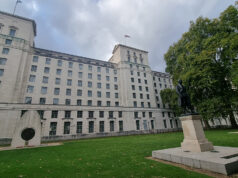
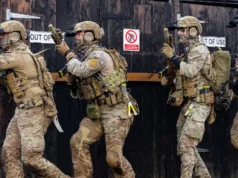



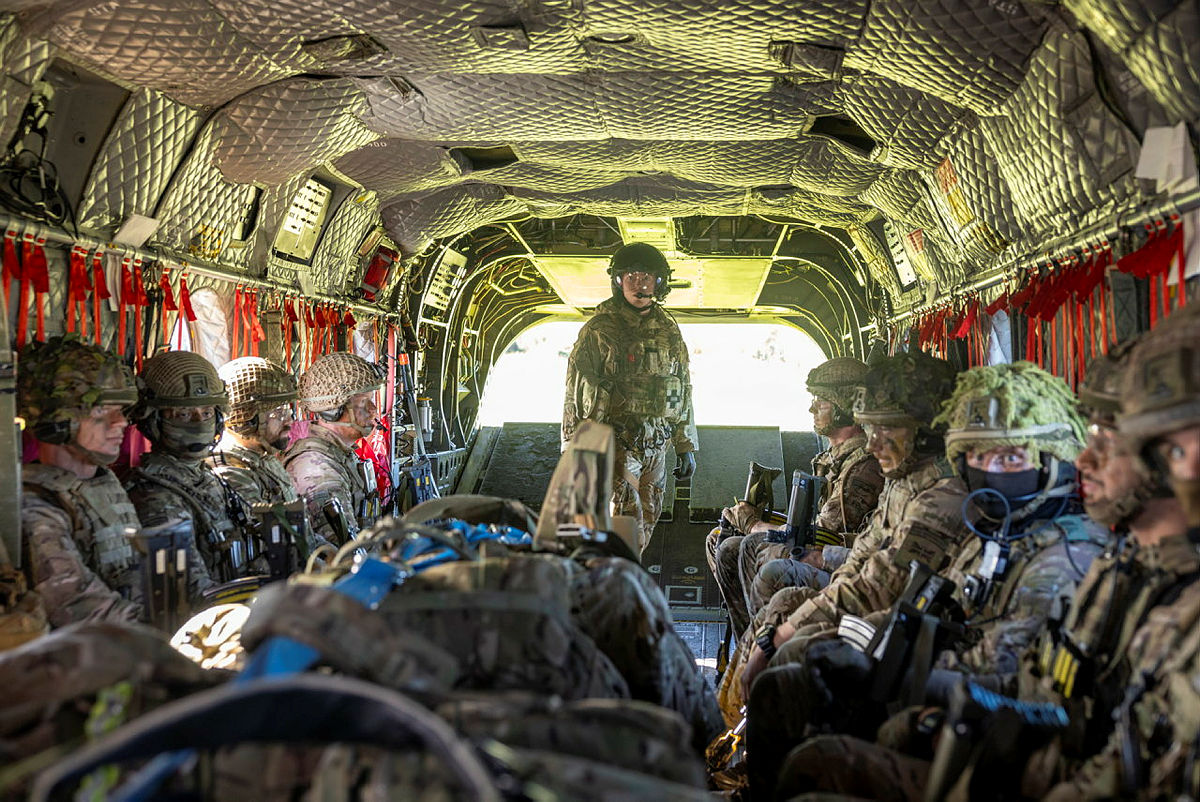

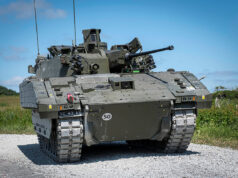
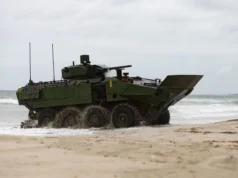

Havent we just signed a deal with Germany that may well throw this activity into full-reverse ?
I wonder about the rationale for it all, given that NATO’s relationship with Russia was already clearly deteriorating at the time the decision was made to withdraw those troops.
Germany is now much further from the real frontline, unlike Poland and the Baltics?
The rationale was cost saving. That’s it. Germany remained a great place to preposition equipment, far enough away that it was outside of easy strike range for Russia, yet in a good road-rail link, and for Mechanised Units a realistic Road Mach distance. But all the money spent on it went into the German economy, not the UK’s so the Conservatives put finance before strategy, figured Russia would never be a threat again, and brought everyone home.
Now if we want to deploy we’ve got to get everyone onto the continent, and make a much larger road move to the old BAOR garrisons, and then make the same road move prepositioned troops in Germany would have had to make.
Not quite true Ian, the decision was made after the German reunification which was brought about due to Gorbachev’s good relations with the West, Nato included, after his talks with Regan over nuclear weapon disarmament, his commitment to Glasnos and perestrioka also played there part. of course the problems we have today are tied in with the promises made at the reunification, the only problem the Russians could foresee would be if the Baltic states joined the European Union which would mean that they would automatically come under NATOs schurm, meaning Russia would have NATO forces stationed on their border, which is exactly what happened, hence the war in the Ukraine now, due in the main to the fact that the Ukraine also wants to be an EU member state, looking back at the stepping stones of history, America almost started a third world war because Russia wanted to place missiles on Cuba, that was too close to their border the USA stated at the time, trying to look at this boarder issue logically who’s right and who’s wrong?
First post… and just repeating Putin’s propaganda.
EU membership btw does not mean NATO memebership (see Austria and Ireland), and HEAVEN FORBID that soverign Nations seek to join protective alliances out of fear of the country that invaded them multiple times and occupied them until only a few years before hand…
BTW, what NATO Nuclear Missiles are in Ukraine or Estonia? Nobody was going to bomb Cuba over Russian troops being stationed there, so you are deliberately conflating two very different things.
Having read your reply I’m somewhat confused, are you English and if no, have you the ability to read the English language? I most certainly did not mention Estonia joining the EU out of fear I actually said “the the only problem the Russians could foresee would be if the Baltic states joined the European Union meaning that they would automatically come under NATOs schurm, that would result in Russia having NATO forces stationed on their border, which is exactly what happened” which part of that didn’t you understand? and as for your *heavens forbid*, I would think that anyone with a little knowledge of the Baltic States history would know they lived in fear for years being forced members of the UDSSR before it imploded, but that wasn’t what I said, nowhere did I say that Nuclear weapons were in The Ukraine or Latvia, read between the lines Dern, and as for me conflating two very different things. is really what conflation is all about, the fear of having an enemy country sitting on or near your own country combines the topic I was discussing, there wasn’t a mention of Cuba being bombed or Russian troops being station there, although I would imagine that the Missiles that Russia wanted to place there would have need military support, for your information Dern,…..the Cuban Missile Crisis was a 13-day confrontation between the governments of the United States and the Soviet Union, when American deployments of nuclear missiles in Italy and Turkey were matched by Soviet deployments of nuclear missiles in Cuba. The crisis lasted from 16 to 28 October 1962. The confrontation is widely considered the closest the Cold War came to escalating into full-scale nuclear war, you really should read up on things like that Derv, I was a young soldier then and to be honest we all thought it was saber rattling it really wasn’t taken seriously, Derv as far as I can see (read) in you answer to my text is that I said everyone came under the NATO schurm and you were correct they don’t, but they do nevertheless have the choice should they want to when they join the EU, in your case Derv you really should read a text through thoroughly before stating your case, but thanks for your reply anyway, I was a young Soldier working on the air sea watch Radar at the RAC Gunnery School in Oct, 1962 during the Cuban Missile Crisis and went on to serve 25 years in the Royal Artillery, mostly in Germany, and I now live in Germany..- Happy days..
Second reply, more drivel, and replying to yourself, and unable to get my name right. Unlike you, I am English, and unlike you I understand the concept of paragraphs and making my responses legible.
I know what you said, you launched into a dishonest tirade acting like EU membership means automatic NATO membership, and repeated the pathetic Putinist lie that countries bordering on Russia shouldn’t be able to choose their own defence posture.
FYI no NATO troops where stationed in any Eastern European Countries, besides those countries own troops, UNTIL PUTIN INVADED UKRAINE in 2014. A fact convieniently forgotten by Moscow propaganda mules like yourself.
I have just one question to ask you Dern (hope I got that Right) that wasn’t the question, WHICH PLANT DID YOU COME FROM ?
Well if you’re asking me what planet I come from:
One where I learned to string a coherent sentence together.
Unlike you.
The amount seems suspiciously given the amount of infrastructure that had to be created.
Much of it was already in place. Many units occupied WW2-era German barracks and airfields.
The amount seems suspiciously small considering the amount of infrastructure that had to built in the UK.
That’s quite a cost. You do have to wonder what the benefits were?
At the time HMG also suggested it’s better personnel spend their money within our economy, not Germany’s.
Is there not still equipment, like armoured vehicles, forward deployed to Germany, even if not actively manned?
If they were finding rats and mouses dens laid up in vehicles in Tidworth after a year god knows what they will find in what if anything was left beyond 23 Amphs Scope in Germany.
Yes in Ayrshire barracks
Yes there is, mostly at Athlone.
Yes. At Athlone Bks is the Land Readiness Fleet which are equiments for units training at Sennelager.
At Ayrshire Bks is the Store Equipment Fleet (Germany) with kit for units on exercise or aoperations around Europe.
Yes there is – Ayrshire Barracks is where a lot of our heavy metal’ is stored and maintained and from where we sustain our forward deployed Battle Group in Estonia – Op Cabrit. Units are usually piped through the chunnel in coaches to pick up their kit and then work up in Sennelaget before gping east.
I doubt we’d have the spare capacity today for that
See answers from me, Dern, Brian the Lion and Pongoglo.
I don’t think so pal I was based in hohne(Bergen/belsen)all british troops are back in England but we still have forward operating bases in cypress,Belize and the Falklands
Hohne was closed, but Sennelager was retained, British Forces Germany was re-branded British Army Germany and much reduced, but an Engineer Squadron, an Exercise area, prepositioned vehicles and supporting troops are still in Sennelager.
Yes.
Athlone Barracks, Paderborn
Land Readiness Fleet (Sennelager) — provides and maintains a pool of military vehicles for units training at Sennelager thus they do not need to bring their own vehicles from the UK.
Ayrshire Barracks, Mönchengladbach
Store Equipment Fleet (Germany) — vehicles and other equipment stored for exercises and operations around Europe.
Correct mate.
Looks like our old friends in Moscow have created a new sock puppet account lol (scroll up).
My understanding is no. It’s was a plan and looked into, but in light of current events the plan is being revised.
No. We retained certain Barracks and Depots and Trg facilities manned by soldiers and civil servants.
And LEC – locally employed civilians – IE Germans !
One of the absolute most stupid decisions of all time along with killing BATUS off that whole cohort of Army HQ and Politicians should hang their heads in shame.
BATUS not totally killed off, I think. Just that the tanks were withdrawn.
Worst timed strategic decision in history.
It was timed to be after the Cold War ended. We are clearly now in a new Cold War – dispositions have been made accordingly by NATO to enhance deterrence and providea trip wire- eFP has been in place for some time.
The withdrawal from Germany started in 1982 with the withdrawal of troops of 2 Armd Div who formed 2 Inf Div in the UK. The next Phase was immediately post the end of the Cold War as dictated by Options for Change, over 30 years ago.
The question is how much would it have cost if we had not withdrawn?
Did the Tories ever really explain meaninfully why we had to getvout of Germany? Was it some kind of post-Cold War peace dividend that has kept on being paid for?
Yes. The explanation was it was expensive and all the money we where paying BFG was going to support the German Economy, not the British economy. So at great expense we built a huge garrison in the middle of nowhere to house the units we where bringing back… all very self defeating, since we now are back on the continent, potentially in Brigade strength (aka the same strength BFG was at by the end), and because troops have exchanged really interesting European postings for…. Tidworth.
Thank you. Hmmmm…that sounds a bit like the benefits claimed for not being in the EU, which included significant savings that could be deployed, as it were, at home. There may well have been, and still are, good rationales, strategic and tactical, for change …. from BAOR, to BFG, and beyond. But that doesn’t, as far as can be seen.so far, appear to have been substantively advanced.
The rationale for leaving Germany was that the Cold War ended!
But still far away from a new potential frontline in Poland or the Baltics?
About half the distance and no sealift required compared to Britain. But also with a Strategic Reserve role, not everything needs to be right on the front on day 1.
A thanks, for convincing me that’s right strategy!
good point. the effect on the personal station there seems to have been ignored.
The Cold War ended, the Warsaw Pact (our military enemy and the counterpoint to NATO) was dissolved, Soviet troops all withdraw back home, the Soviet Union collapsed, Soviet/Russian forces downsized and certain of their military capabilities ‘withered on the vine’.
Not so surprising that we downsized the army (by 40,000) and air force and (with a small exception) came out of Germany. It seemed quite rational at the time given the fundamentally changed geo-strategic situation.
Ahhh …. you have already explained. But was any of that really credible? A bit like, ahem, leaving the EU. The gift that keeps on costing.
https://ukdefencejournal.org.uk/british-troops-in-germany-draws-down-to-1200-from-30000/
Don’t talk about Brexit..it upsets the Bus believing masses
Brexit?
Brexit means breakfast.
Ah …. James not so Clever(ley)’s batshit? 😉
I see! So all the fuss is about menus? Rightly so and relevant. Fighting men and women march on their stomachs. We must keep them fit and well supplied.
Does this include the withdrawal of The Royal Air Force too?
From Francis Pymm to Michael Portaloo … best part of two decades?
I don’t think one should castigate all politicians …. at least not those that are NOT part of the government or opposition teams, who form the select committees.
This, from the House of Commons, lays out the not so historical context, and what was in train for all of the armed forces.
THE HISTORICAL CONTEXT
The Fall of the Soviet Union, Options for Change and Front Line First
https://publications.parliament.uk/pa/cm199798/cmselect/cmdfence/138/13805.htm
The RAF would be better positioned in Sweden, nearer a new frontline?
Just imagine F-35’s forward deployed in Sweden, a lot of juicy targets across the water!
The RAF had long withdrawn from Germany before BFG was wound down even further when 7 and 20 Bdes came back.
Some of its stations were used to garrison army units.
RAF Bruggen was I recall Javelin Barracks, RAF Gutersloh was housing units of the RLC I recall.
Laarbruch and Wildenrath had all long gone.
Larrbruch now Weeze International’. So, still a working airfield. Ryanair could provide transport?!
Surely it must do. RAF(G) was ‘UK military’ in Germany too.
They withdrew but with in a year the British military return..in what I heard through media the German military and people wanted the British back
I lived in Germany as a kid with my parents ( RAF) then again after joining the RAF.
We integrated well with the locals and brought a lot to the German economy.
German friends all state that they all believe that the areas that the British bases were are not as well off as before.
And now with the rising tensions with Russia again, they think it was a poor decision by both Governments to withdraw the British military presence.
Yep and that’s why a lot of my generation have German wives 👍
👍🏻
Goes without saying. For a lot of the Garrison towns the British Army was a major direct and indirect employer.
Without knowing how much we spent per annum on maintaining our military presence pre-withdrawal, and how much we now spend on our residual presence in Germany, the £2.13Bn figure doesn’t seem to me to mean very much.